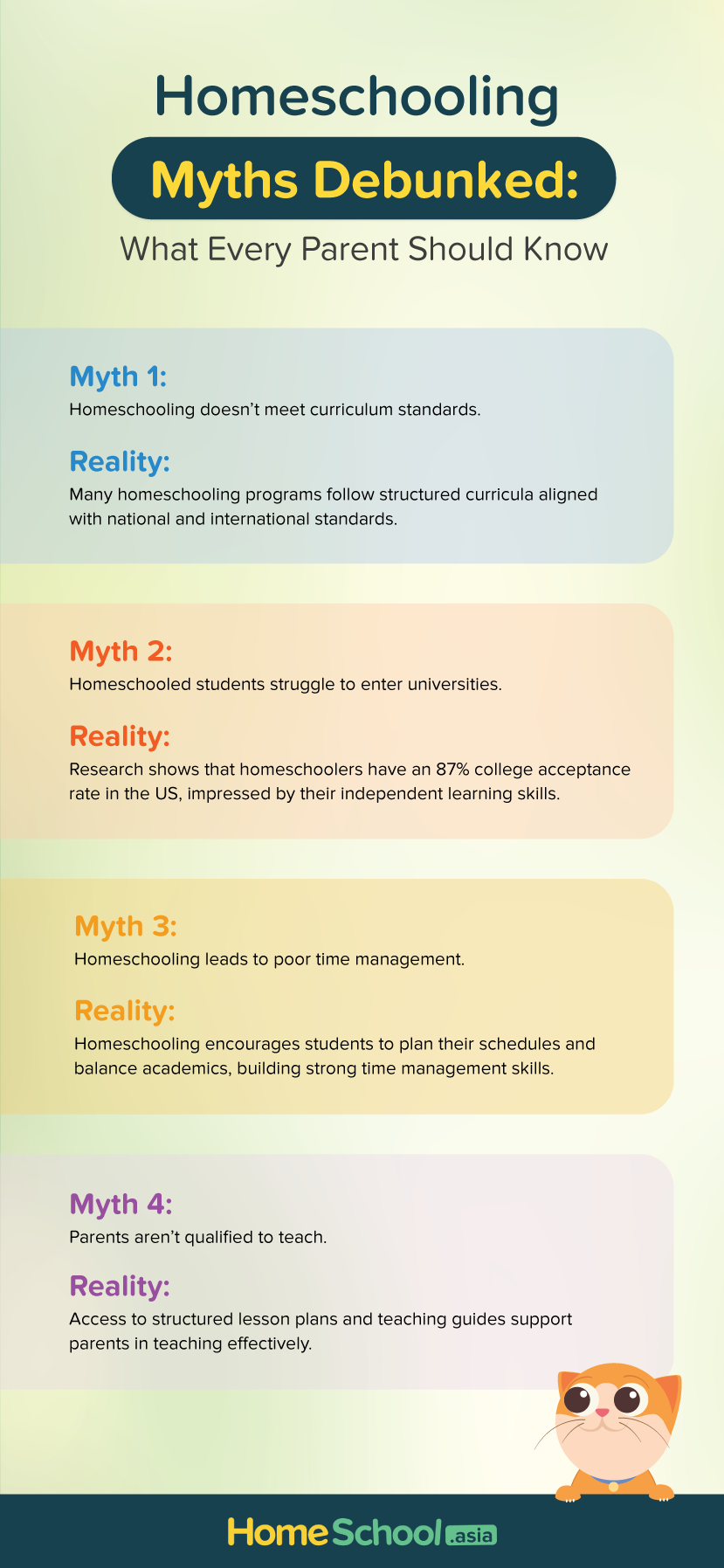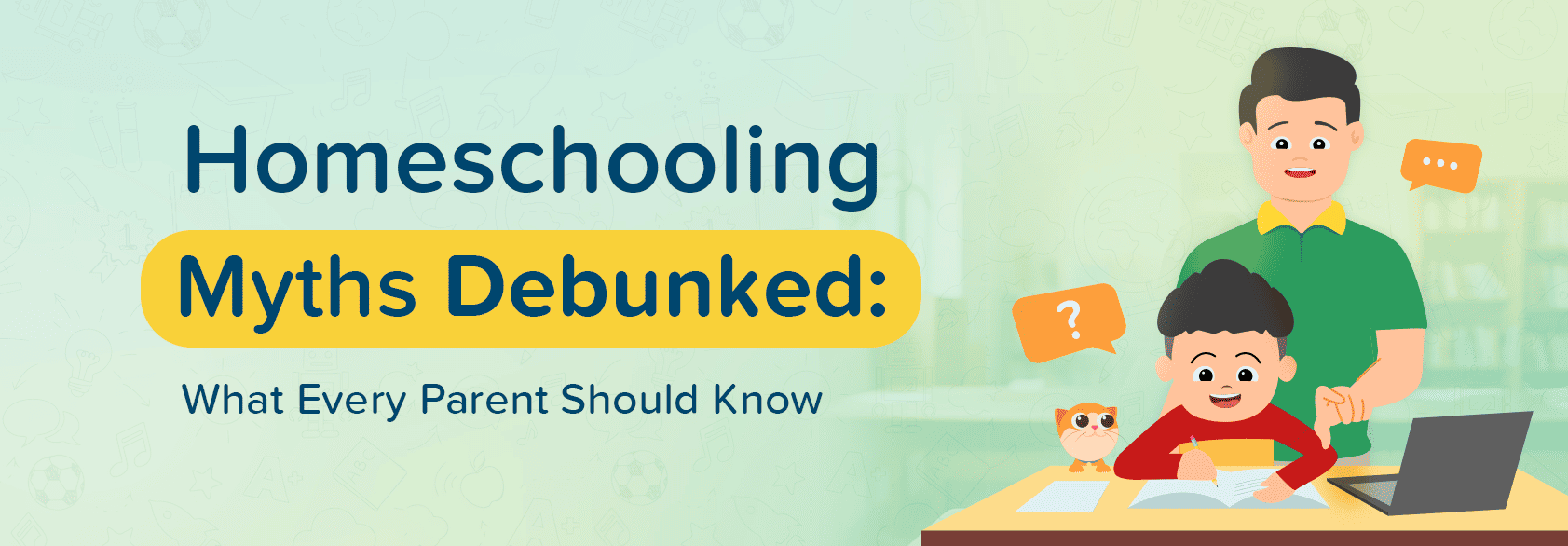As a parent, have you ever wondered if homeschooling actually works? Well, you are not alone. Many parents share concerns regarding academic quality, socialisation, and their teaching abilities when considering homeschooling, which often makes them hesitant to start.
In today's digital age, homeschooling has evolved far beyond its traditional image of education confined to study materials available at home. With a plethora of online resources and innovative platforms, modern-day homeschooling offers interactive learning materials to study and data-driven insights to enable real-time monitoring for informed guidance. Importantly, homeschooling is not only popular in the US or Western countries, but it is also rapidly growing in Asia. In regions where access to quality schools can be limited due to geographical and infrastructural challenges, homeschooling and online education platforms provide an invaluable alternative.
While it's true that certain aspects of conventional schooling might be absent, the benefits, on the other hand, cannot be ignored. In this blog, we aim to explore some common myths regarding homeschooling and uncover the reality behind them.
Myth 1: Homeschooling Doesn't Meet Curriculum Standards
It is pretty normal for parents and students to think that homeschooling lacks a structured curriculum or doesn't meet national or international curriculum standards. However, this is not entirely true.
Many homeschooling platforms provide structured curricula for students. For instance, HomeSchool.asia offers well-organised content aligned with the Cambridge curriculum for IGCSE and AS/A Levels, providing interactive videos for every lesson and assessment tools for efficient learning. In Asian countries like Malaysia, several homeschooling platforms offer homeschool programs and international curricula for Malaysian grades. Additionally, countries like the US and UK have also proposed bills requiring parents to register as home educators. These bills aim to give authorities greater oversight of homeschooling practices, ensuring that basic educational standards are met for homeschooled children.
Myth 2: Homeschooled Students Struggle to Enter Universities
One of the biggest concerns of homeschooling is whether the students can gain admission to the universities of their choice. However, many prestigious institutions, including Harvard, Stanford, Princeton, and the University of California, actively welcome homeschooled applicants. It is very important to note that homeschooled students in the US have a significantly higher college acceptance rate, with an impressive 87% acceptance rate compared to 68% for public school graduates. This is largely due to admission officers' appreciation for students' independent learning skills, self-discipline, and diverse extracurricular activities that homeschooled students bring to the table.
Myth 3: Homeschooling Leads to Poor Time Management Skills
Conventional schooling follows a rigid schedule, often encompassing 5-8 subjects in a day with specific time allocated for each subject. However, this does not necessarily translate into effective time management.
On the contrary, homeschooling fosters stronger time management skills, where students learn to plan their schedules by allocating study time and managing assignment deadlines and tests independently. Honing these skills also fosters strong organisational skills, develops self-discipline and responsibility, and prepares students for college and their professional development.
Myth 4: Homeschooled Students Underperform Academically
There's a popular notion that homeschooled students underperform academically compared to their schooled peers. However, the statistics indicate otherwise.
- According to research, 66.7% of homeschooled students graduate from college, compared to 57.5% of their traditionally schooled peers.
- Homeschooled students typically score 15-25 percentile points higher than public school students on standardised academic achievement tests.
The flexibility and tailored learning experience that homeschooling brings allows students to learn at their own pace, often leading to stronger academic performance.
Myth 5: Parents Aren't Qualified to Teach
Many people, including parents, believe that they lack the necessary qualifications to teach or guide their children effectively. While most parents are not certified teachers, homeschooling platforms provide comprehensive teaching guides, structured lesson plans, and support from subject experts to assist parents. These resources empower parents to effectively support their child's education. With guided lesson plans, progress-tracking tools, teaching guides and more, parents can tailor their teaching to match their child's unique learning style and meet curriculum standards. Moreover, access to a supportive community of fellow homeschoolers and parents allows them to share ideas and practices or any experiences, which ensures that parents never feel alone in this journey and always have other parents to rely on.
Myth 6: Lack of Tutor Support
Homeschooling may have been a self-learning journey; however, the rise of online learning platforms like HomeSchool.asia has given students access to tutors or subject experts for guidance in various subjects. Whether it's clarifying a complex concept or preparing for an examination, expert guidance is easily available not just for homeschooled students but also for their parents. This immediate access to academic support means that every query is addressed in real time, ensuring that students receive timely, actionable feedback to help them improve. They can ask questions, discuss their solutions, and even review marked assignments to better understand where they can grow. This accessibility ensures homeschooled students have effective and timely support in their learning journey.

With the rise of online learning platforms like HomeSchool.asia, these myths regarding homeschooling are being redefined in a more positive aspect. Apart from students, these platforms also allow parents to provide structured, engaging, and curriculum-aligned education while also providing the support and resources necessary to guide their children effectively from home.
Homeschooling is no longer an unstructured or isolated approach to education. Whether it's gaining acceptance to top universities, mastering time management skills, or excelling academically, modern-day homeschooled students are equipped with the tools and opportunities to thrive.






